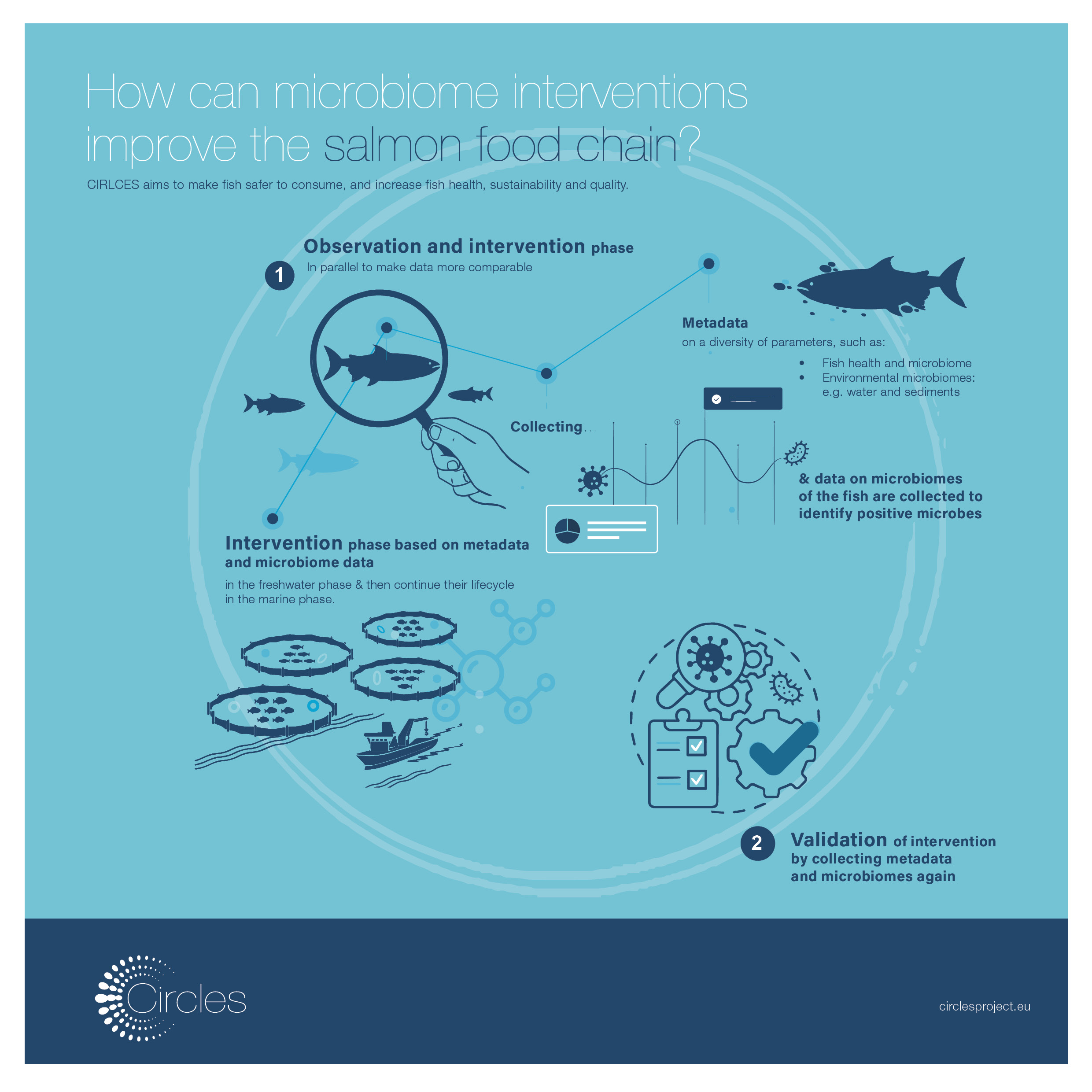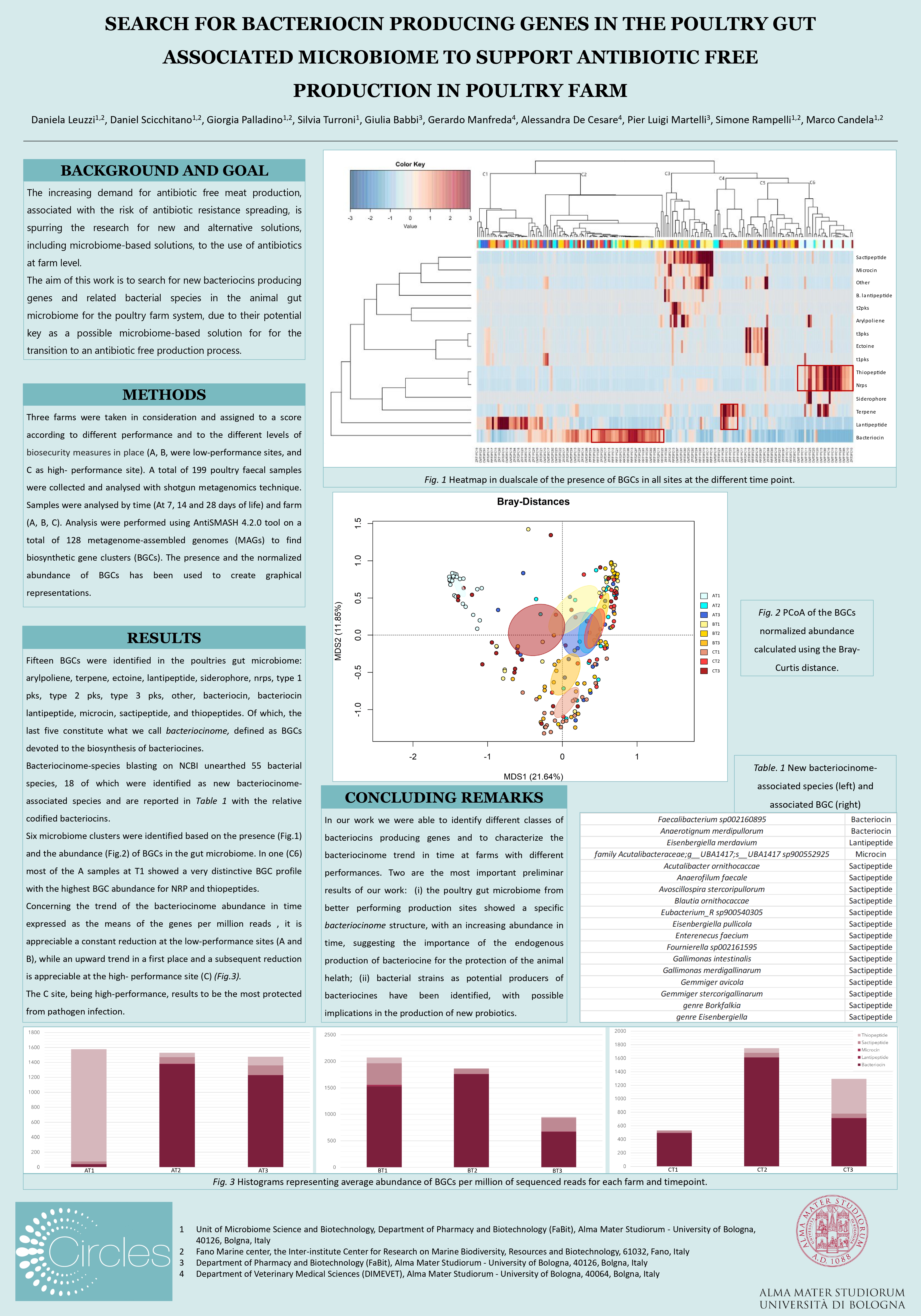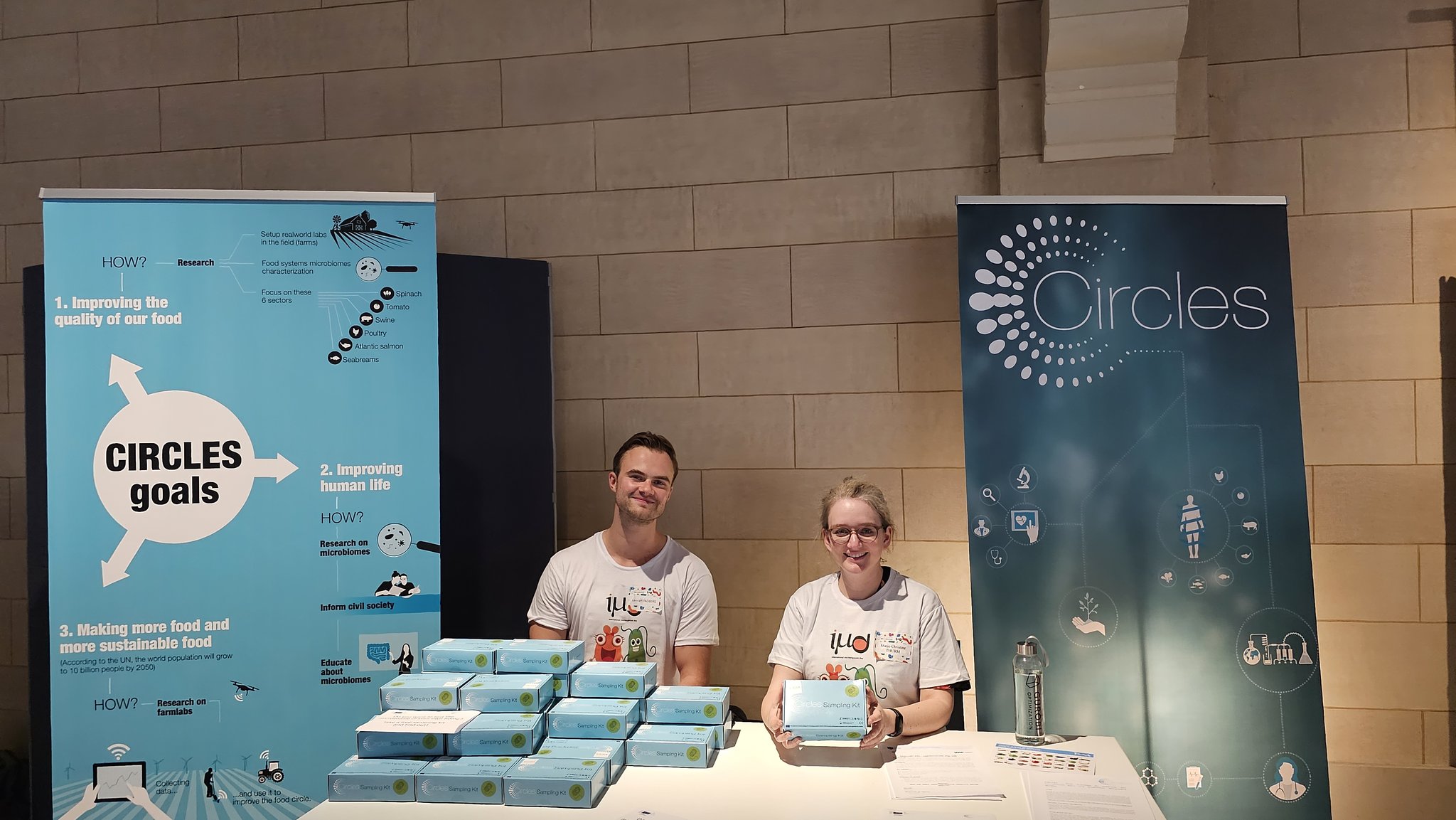Held on June 27th each year, the World Microbiome Day highlights the profound impact of microbiomes on human health, ecosystems, and sustainable living. In a collaborative effort, the European Food Information Council (EUFIC) and APC Microbiome Ireland have prepared an engaging lineup of activities to mark this occasion, this year under the theme “microbes and food”, With quizzes, webinars, and insightful blog articles, the event aims to deepen understanding and appreciation of the microbial world. CIRCLES joined the organization of the event by creating two blog posts answering the questions “How does climate change impact our coastal ecosystems?” and “Why studying the microbiome matters – Unveiling the Hidden World of Microbes”, as well as a quiz on food production.
Quizzes: Exploring the Connection Between Our World and Microbiomes
Intriguing quizzes challenge participants to explore the deep relationship between our world and microbiomes. These quizzes provide a fun and interactive way to learn about the ways in which microbial communities shape our environment, influence our health, and impact various industries, especially the ones in the food chain.
Participants can test their knowledge and discover fascinating facts about the importance of microbiomes in diverse ecosystems, such as the soil, oceans, human gut, animals and production food chain.
CIRLCES participated with a quiz on food production …..
CIRCLES blog articles: Exploring Climate Change and the Importance of Studying Microbiomes
As part of the event, two partners of the CIRCLES project, Giorgia Palladino from the University of Bologna and Luigi Vezzulli from the University of Genova, have penned enlightening blog articles.
Giorgia Palladino’s article delves into the intricate topic of climate change and its impact on coastal ecosystems. Coastal ecosystems face a multitude of challenges, including rising ocean temperatures, acidification, nutrient imbalances, sea level rise, erosion, and changes in salinity and ocean currents. These changes disrupt the delicate balance of microbial communities, impacting nutrient cycles, primary production, and the overall health of coastal habitats.
Two expeditions were undertaken off the coasts of Riccione, Italy, and Cap de Creus, Spain, popular tourist destinations with varying degrees of human impact. The study revealed the remarkable adaptability of the A. viridis-associated microbiota to environmental challenges.
Readers will gain insights into the delicate balance maintained by microbiomes in these vital habitats and learn about the potential consequences of climate change on their biodiversity and functionality.
Luigi Vezzulli’s article highlights the importance of studying microbiomes and delves into the reasons why these intricate communities deserve our attention. Comprising a diverse range of microbes, their genetic elements, and their products, the microbiome plays a crucial role in various environments, including animals, plants, and the environment itself. Recent advancements in technology have propelled microbiome research to new heights, revolutionizing disciplines such as ecology, medicine, and agriculture.
In this very clear explanation, the readers will find evidence on how studying microbiomes can unlock valuable insights into human health, environmental conservation, and sustainable practices.
Webinar: Microbes for a Healthy and Sustainable Future
A highly anticipated webinar, titled “Microbes for a Healthy and Sustainable Future,” took center stage during the World Microbiome Day activities. Renowned experts in microbiome research and sustainability shared their insights on harnessing the power of microbes to address pressing global challenges.
The webinar shed light on innovative applications of microbiome research. Participants gained valuable knowledge about how microbes can contribute to a healthier and more sustainable future for all and had the chance to participate by asking questions to our panel of experts.







